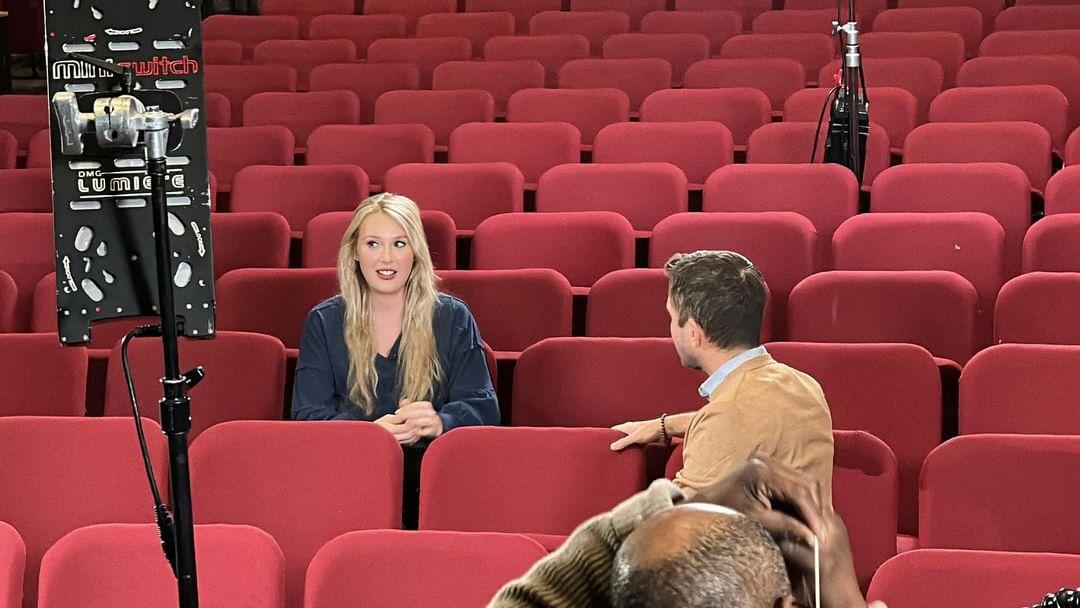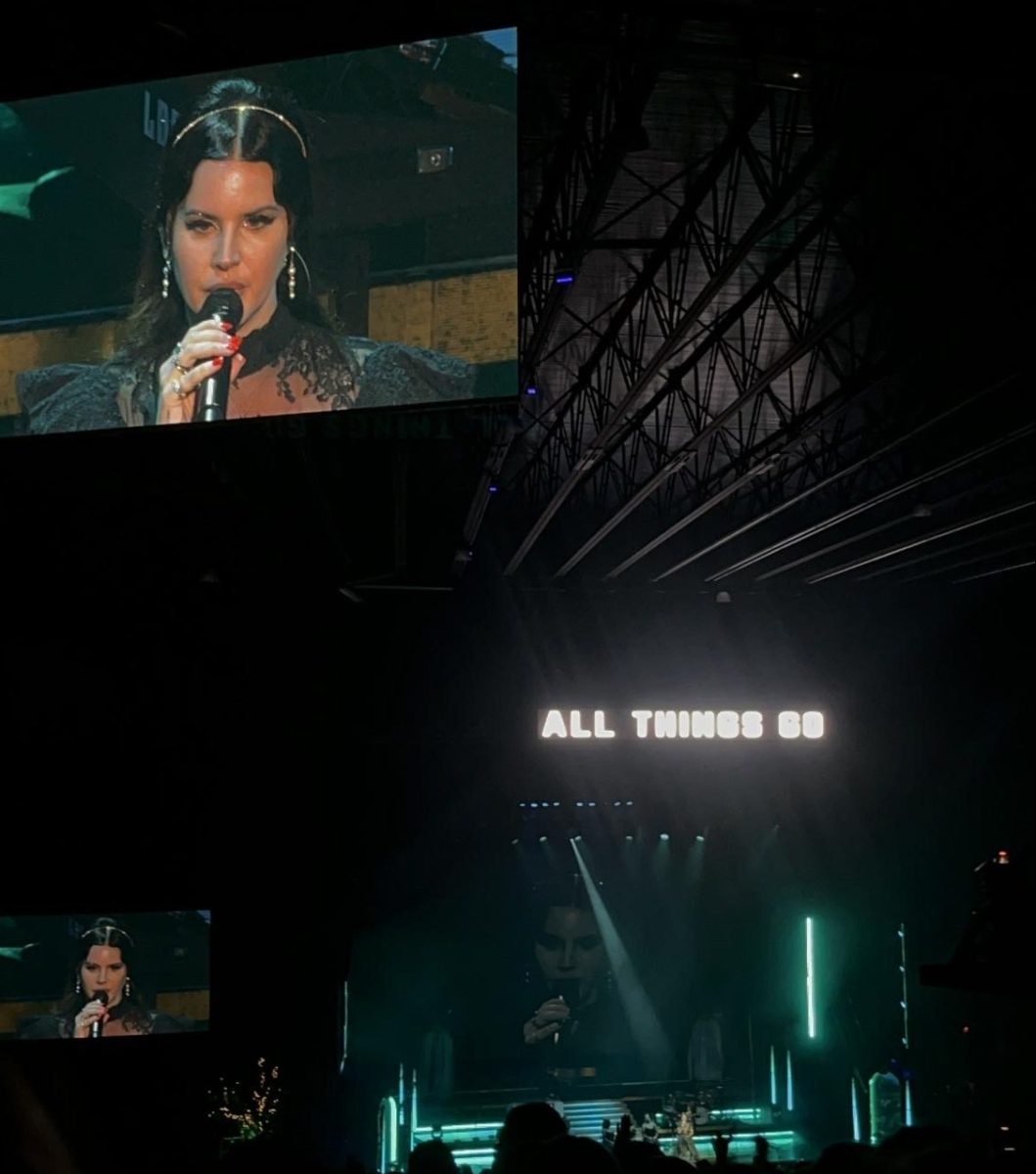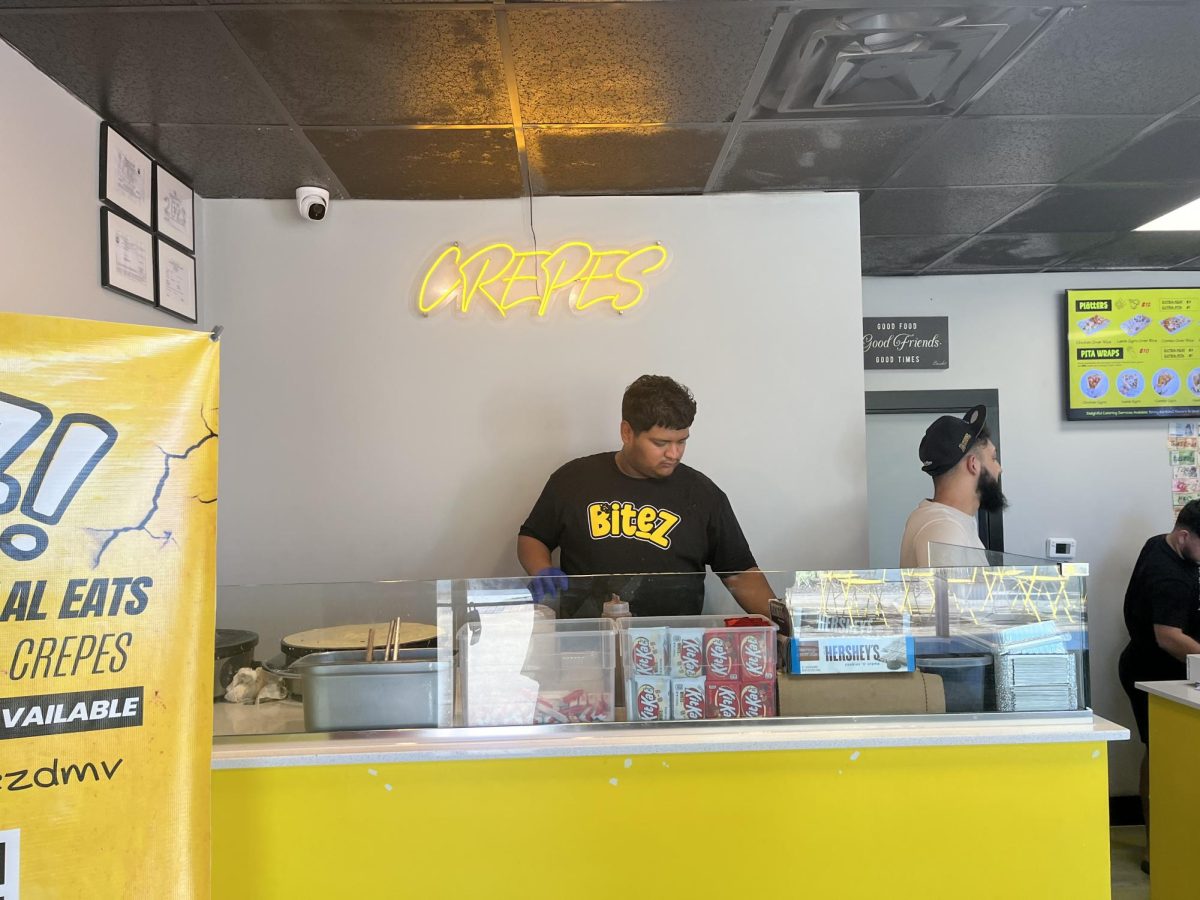It took four years of dreaming, planning, working and competing, but senior Daniel Park has finally achieved his goal of advancing to the Intel International Science and Engineering Fair as one of 10 grand prize winners at the regional level.
“It’s an absolutely phenomenal feeling,” Park said after the announcement of his finish, which also included a first place award in biochemistry.
“It’s months of work, hundreds of hours of breakthroughs that turned out to be nothing but false alarms, hundreds of hours of messing up a culture so that you have to start all over, hundreds of hours learning from scientists much older than us, hundreds of hours of travel,” Park added. “It all compiled and I seriously felt like crying. It’s kind of like what true happiness is; working so hard and finally getting it after four years and hundreds of hours of work.”
Park’s journey to internationals began this past summer at the Virginia Summer Residential Governor’s School for Mathematics, Science and Technology, where he met partner Kelvin Niu, a junior at Langley.
“From the very beginning we wanted to do a cancer project, and we looked up the most deadly cancers and found that pancreatic was one of them,” Park said. “We were inspired by Steve Jobs’s death and we read that he died because there was no reliable diagnostic for pancreatic cancer.”
Months later, after reading a variety of medical journals, discovering a relationship between zinc and pancreatic cancer cells and putting in 15 weeks of work at the National Institute of Health, Park and Niu have developed a “possible diagnostic test and treatment for pancreatic cancer.”
“Pancreatic cancer is known as the silent killer. There are few symptoms and they appear very late into stage progression, so in many cases, by the time the cancer is detected, it’s most likely terminal,” Park said. “We tried to develop a possible diagnostical and therapeutical tool. We wanted to create a treatment because that saves live and we wanted to create a diagnostic because that saves even more lives.”
Having received both first place in biochemistry and a grand prize for their work, Park and Niu will advance to the Virginia State Science and Engineering Fair from April 6-7 in Norfolk, VA and the Intel International Science and Engineering Fair from May 13-18 in Pittsburgh, PA.
Park, however, was not the only AHS student to bring home a prize, as a number of other AHS students also performed well at the regional fair, held from March 16-18 at Robinson SS.
Sophomore Michael Danyliw was himself nominated for a grand prize, finishing first in electrical and mechanical engineering for his experiment studying the effect of the tracking axes of solar panels on the amount of wattage produced.
“I feel like it’s a big accomplishment as a sophomore to be chosen to win a grand prize,” Danyliw said. “It’s a pretty big honor to actually have a shot at it.”
Although Danyliw expected to be in the running for a first place prize, he was greatly surprised by his grand prize nomination. Having advanced to the state science fair last year, he already knows what to expect at this year’s competition.
“It kind of humbles me to see what other people do for their science fair projects,” Danyliw said. “People are curing cancer and stuff and [it humbles me] just to see how many hours of work people have put in.”
Danyliw will advance to the state competition this year, where he hopes to “place either first or second in my category and hopefully get out of there with some money.”
Additionally, junior Kevin Kwok, junior Ben Vest, sophomore Eric Mejean and freshmen Kaitleigh Fetterman and Kristina Nguyen each took home second place prizes in their respective categories.
Kwok, a veteran to the regional science fair, created a system for compressing text files similar to a zip file. Though he received a $500 scholarship from the Armed Forces Communications and Electronics Association and a Certificate of Merit from the Patent and Trademark Office Society, he was somewhat disappointed with his regional showing after having advanced to the state fair last year.
“I didn’t expect the $500, but second place was a little disappointing because I had first place last year and I had a few more awards that year too,” Kwok said. “I wouldn’t say [going to states] was a goal, but it would have been pretty cool to go there again.”
Nguyen and Mejean, on the other hand, did not expect to win anything heading into the fair and were instead pleasantly surprised by their finishes and the experience the fair provided.
“I didn’t really expect to place or win anything because the project wasn’t really complicated and it wasn’t like dealing with cancer,” Nguyen, who worked with Fetterman to test the effect of varying surroundings on the decomposition of trash, said.
“Going into science fair, I honestly was expecting to win nothing. I’m surprised that I even made it to regionals,” Mejean, who manipulated temperature to test the life of a glow stick, said. “But I’m really happy that I got the chance to participate and I want to go to states next year.”
Similarly, Vest did not know what to expect heading into the fair, though his project pitting different algorithms against each other in a game of checkers received an Effective Use of Computer Technology Award of $250 and Certificate from Information Concepts, Inc. and a Certificate of Appreciation from the Missile Defense Agency.
“The second place finish and awards are nice because all the work that went into the project paid off,” Vest said. “On top of that, the recognition that I did something fairly interesting is cool.”
Though none of these second place finishers will move on to the state fair, most seemed pleased by the outcome of the regional competition, which Danyliw referred to as an important learning experience.
“I think the science fair is definitely a very educational experience for people,” Danyliw said.
Similarly, Park recognized the significance of the event to the science community, describing it as more important than the average sports contest.
“I’m happy that I’m a part of the science revolution because science is what’s going to change the world,” he said.








